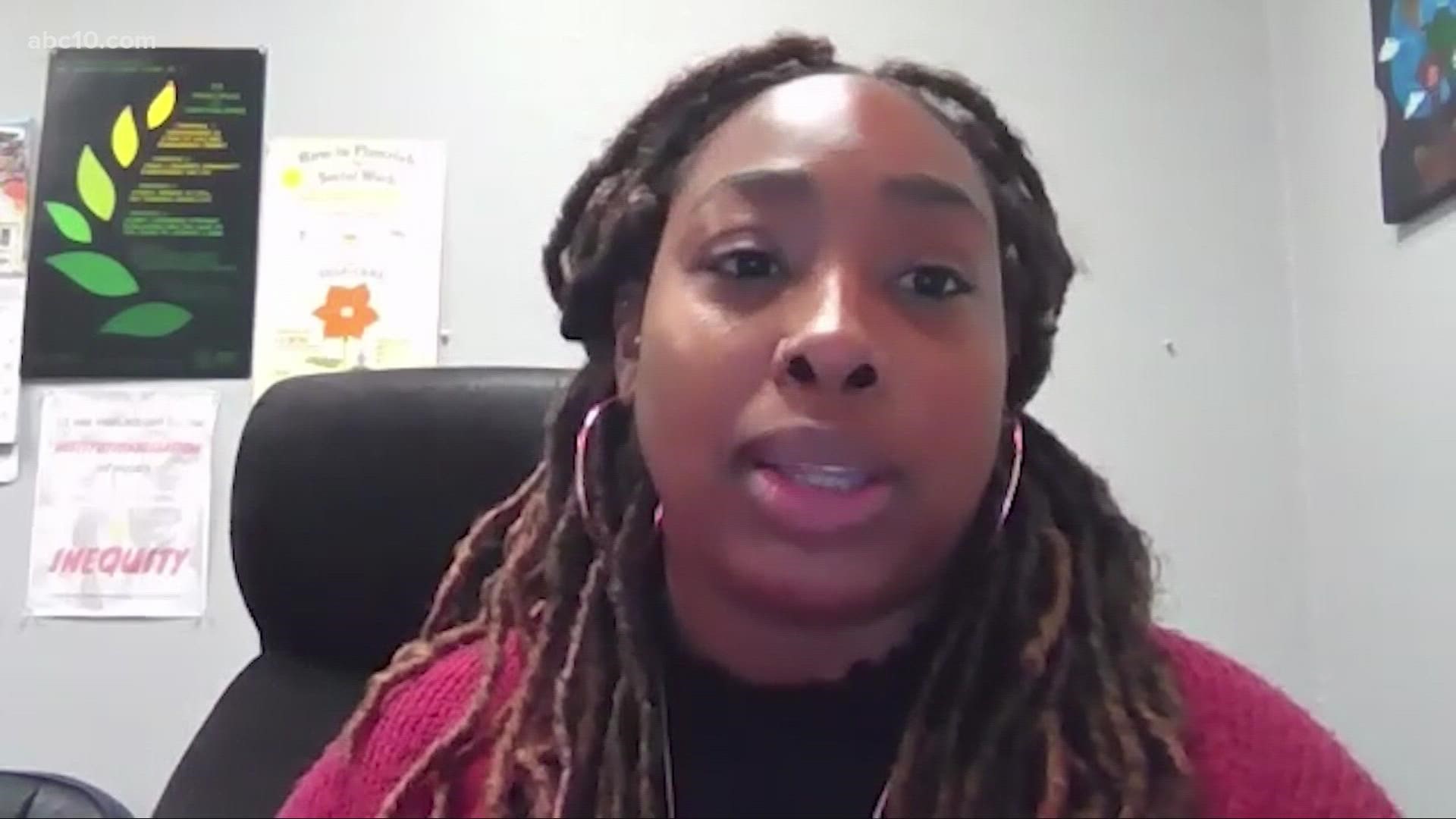SACRAMENTO, Calif — Black Maternal Health Week is recognized each year from April 11-17. It's all about raising awareness and addressing racial disparities in pregnancy-related deaths in the U.S.
The Black Mamas Matter Alliance (BMMA) founded the campaign to:
- Deepen the national conversation about Black maternal health in the US;
- Amplify community-driven policy, research and care solutions;
- Center the voices of "Black Mamas," women, families and stakeholders;
- Provide a national platform for Black-led entities and efforts on maternal health, birth and reproductive justice; and
- Enhance community organizing on Black maternal health
This year marks the fifth anniversary of the campaign. The 2022 theme is "Building for Liberation: Centering Black Mamas, Black Families and Black Systems of Care," which reflects BMMA's work in centering Black women's scholarship, maternity care work, and advocacy across the full-spectrum of sexual, maternal and reproductive health care, services, programs and initiatives.
Each year in the U.S. about 700 people die during pregnancy or in the year after, according to the Centers for Disease Control and Prevention. Another 50,000 people each year have unexpected outcomes of labor and delivery with serious short- or long-term health consequences.
Every pregnancy-related death is tragic, especially because two in three of them are preventable. The maternal mortality rate is highest among Black mothers as opposed to any other group.
According to the CDC, Black women are three times more likely to die from a pregnancy-related cause than white women in the U.S. In California, Black mothers are four to six times as likely to die. Multiple factors contribute to these disparities, such as variation in quality healthcare, underlying chronic conditions, structural racism and implicit bias.
The California Black Infant Health Program offers a safe space for Black women to meet, interact and build a sisterhood with others. Group sessions are complemented with client-centered life planning, goal setting and referrals to services for participants and their families. The program also helps women enhance life skills, learn proven strategies to reduce stress and build social support.
During Black Maternal Health Week, you might want to consider learning more about how to support pregnant people to reduce factors that contribute to pregnancy-related complications and death.
The CDC offers the following information for addressing the racial health disparities:
Pregnant people and their families can:
- Talk to a healthcare provider if anything doesn't feel right or is concerning.
- Know and seek immediate care if experiencing any of the urgent maternal warning signs, including severe headache, extreme swelling of hands or face, trouble breathing, heavy vaginal bleeding or discharge, overwhelming tiredness, and more. These symptoms could indicate a potentially life-threatening complication.
- Document and share pregnancy history during each medical care visit for up to one year after delivery.
- Maintain ongoing healthcare and social support systems before, during, and after pregnancy
Healthcare providers can:
- Ask questions to better understand their patient and things that may be affecting their lives.
- Help patients, and those accompanying them, understand the urgent maternal warning signs and when to seek medical attention right away.
- Help patients manage chronic conditions or conditions that may arise during pregnancy like hypertension, diabetes, or depression.
- Recognize unconscious bias in themselves and in their office.
- Address any concerns patients may have.
- Provide all patients with respectful care.
Hospitals and healthcare systems can:
- Identify and address unconscious bias in healthcare.
- Standardize coordination of care and response to emergencies.
- Improve delivery of quality prenatal and postpartum care.
- Train non-obstetric care providers to ask about pregnancy history in the preceding year.
States and communities can:
- Assess and coordinate delivery hospitals for risk-appropriate care.
- Support review of the causes behind every maternal death.
- Identify and address social factors influencing maternal health such as unstable housing, transportation access, food insecurity, substance use, violence, and racial and economic inequality.
WATCH MORE:
WATCH ALSO:

